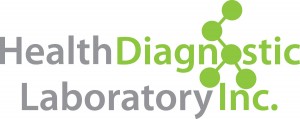Critics of the American healthcare system have long cited hidden charges as one reason why costs are so high and why reform is needed.
So, it is disturbing to read a report on the front page of today’s Wall Street Journal that Health Diagnostic Laboratory, arguably the most successful of the biotechnology firms to come out of a much-touted research park in Richmond, is implicated in a possible scheme to pay kickbacks to doctors who use its blood testing services.
The Journal reports:
Until late June, HDL paid $20 per blood sample to most doctors ordering its tests — more than other labs paid. For some physician practices, payments totaled several thousand dollars a week, says a former company employee.
HDL says it stopped those payments after a Special Fraud Alert on June 25 from the Department of Health and Human Services, which warned that such remittances presented “substantial risk of fraud and abuse under the anti-kickback statute.
HDL Chief Executive Tonya Mallory told the Journal that her firm “rejects any assertion” that the company grew as fast as it did “as a result of anything other than proper business practices.”
Meanwhile, HDL has sent Bacon Rebellion this updated response.
Others say that paying doctors fees sets up the chances for fraud, especially in Medicare, one of HDL’s biggest markets, the Journal reports. Other testing firms, the Journal reports, pay doctors nothing for using their services.
This is bad news for what was Richmond’s Poster Child of successful high tech startups after years of flops at the Virginia Biotechnology Research Park. Founded in 2008 under Mallory’s leadership, HDL zipped up to $383 million in revenues with 41 percent of that coming from Medicare,” the Journal says.
Much of the issue seems to be related to how accurately and fairly to define what is merely drawing a patient’s blood and how much goes for “P&H” or processing and handling. A problem is that Medicare doesn’t pay any more than $3 for merely drawing blood. HDL has estimated that the “P&H” part is worth about $17. The firm claims it has special proprietary methods that give it an edge.
According to Virginia Business magazine, which named Mallory its person of the year last year:
Mallory, 48, founded HDL in the summer of 2009. Since then, it has grown from a kitchen-table business plan to a corporation earning more than $420 million in annual revenue, employing 750 people, processing 4,000 lab samples and running more than 60,000 lab tests each day. HDL has driven near constant construction at its home in downtown Richmond’s Virginia BioTechnology Research Park, where a $68.5 million expansion soon will triple the company’s footprint to 280,000 square feet.
Last year Mallory received the Ernst & Young National Entrepreneur of the Year award in the Emerging Company category. One of the country’s most prestigious business awards for entrepreneurs, it recognizes leaders who demonstrate innovation, financial success and personal commitment as they build their businesses.
The Journal, however, quotes several disgruntled employees and notes that Mallory had worked for a California firm called “Berkeley Heart Lab Inc,.” which began using tests called “biomarkers” which can predict future health problems by analyzing blood.
Mallory, who was raised in Hanover County and attended Virginia Commonwealth University, was senior lab-operations manager at Berkeley until she left for Richmond in 2008, the Journal says. Two Berkeley sales executives went with her and formed a company that ended up marketing HDL’s products.
Berkeley sued HDL, accusing it of stealing its business. HDL denied the allegations. HDL settled one case for $7 million, the Journal says, but other cases are pending.



